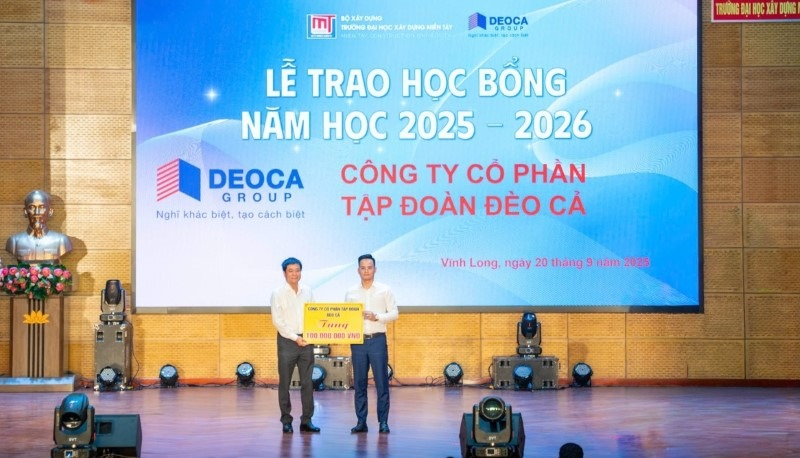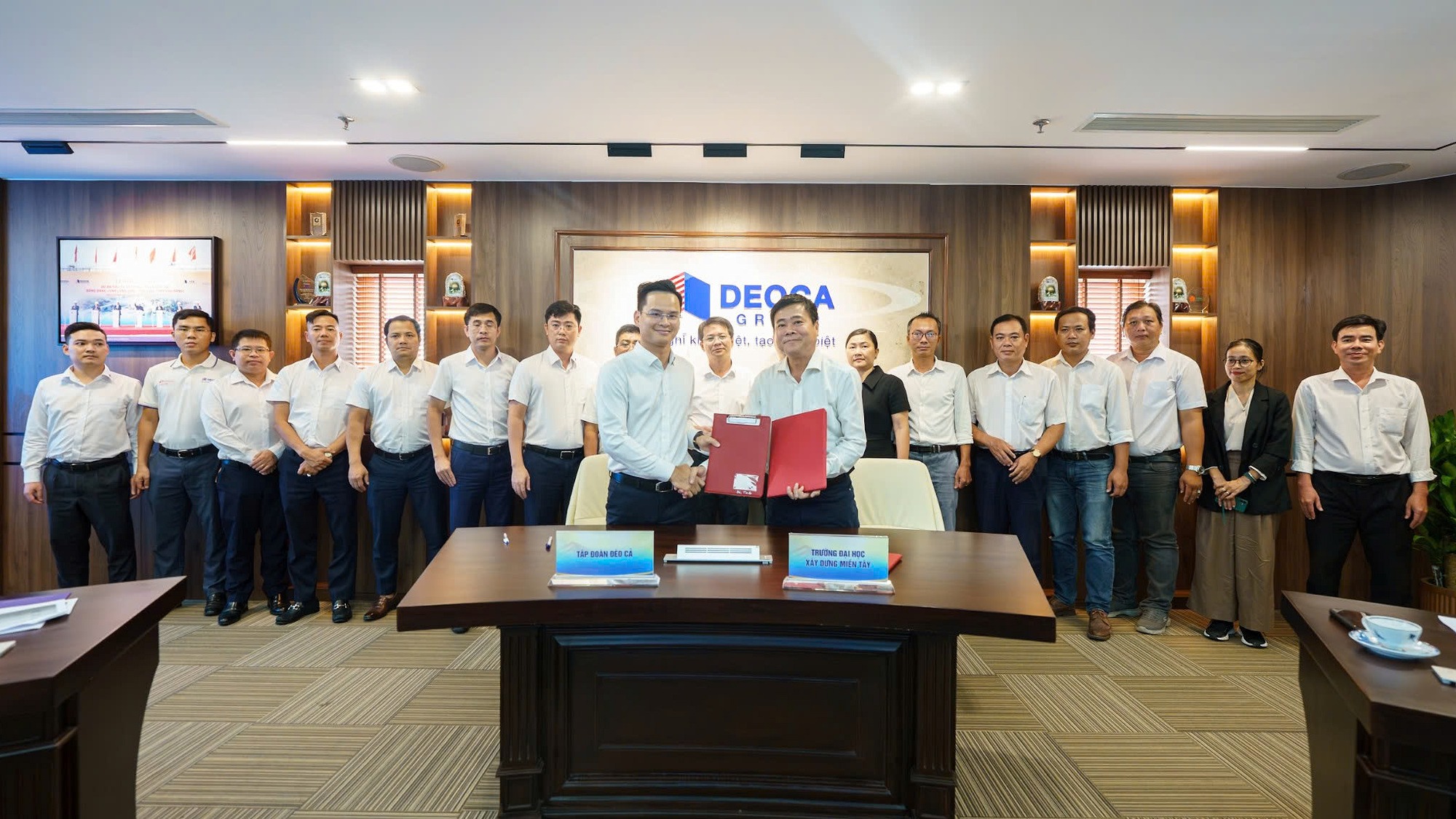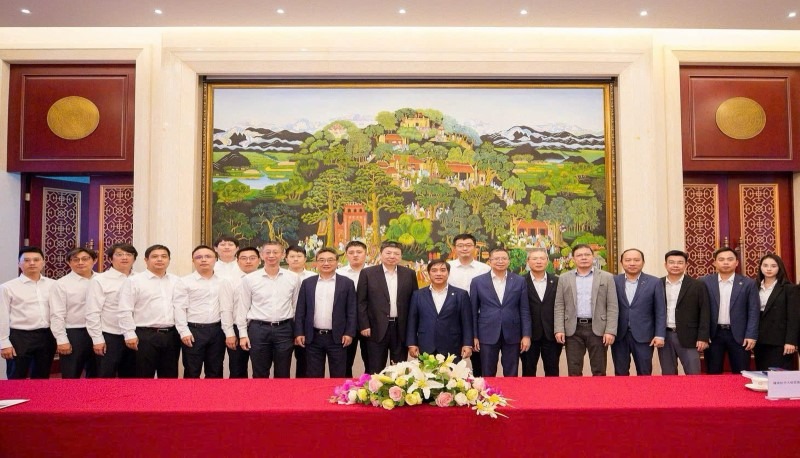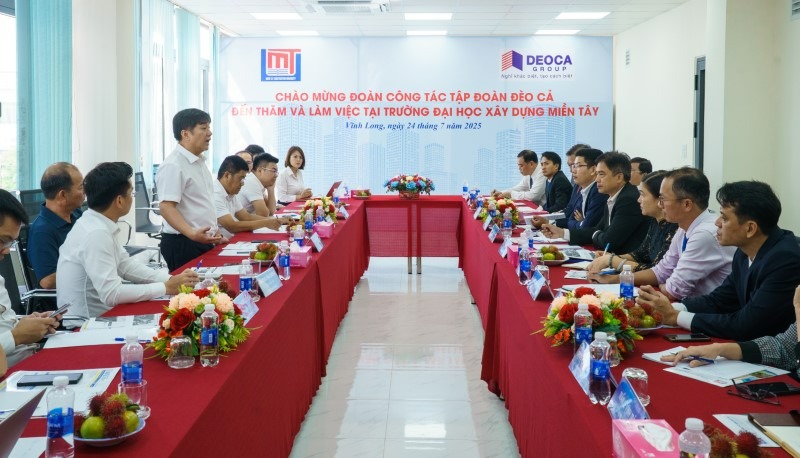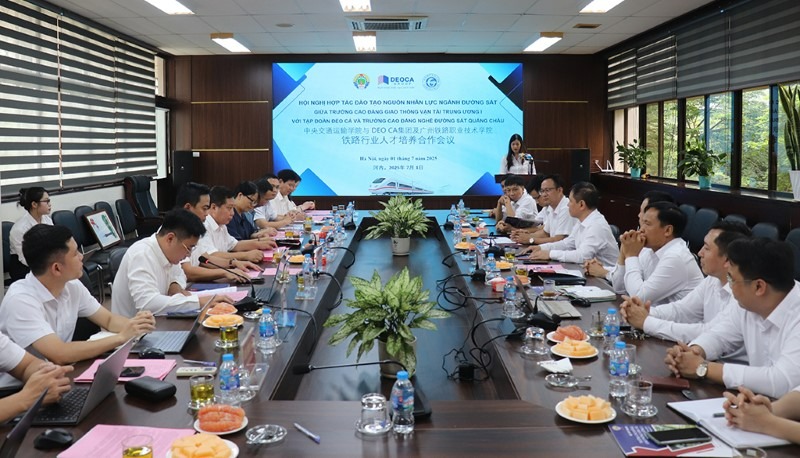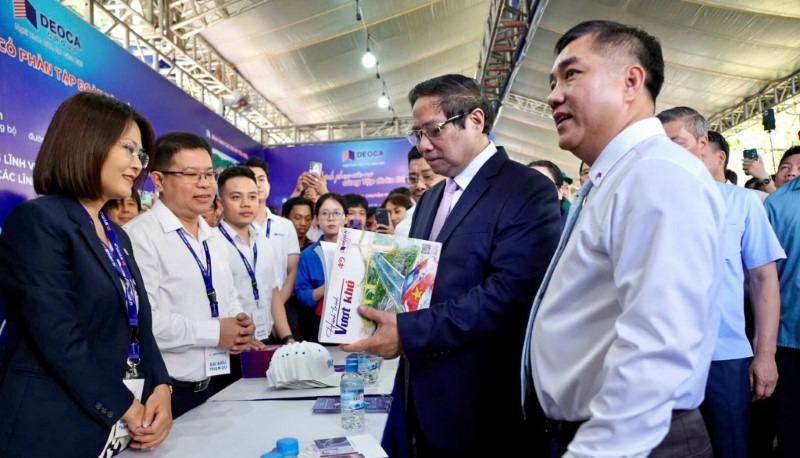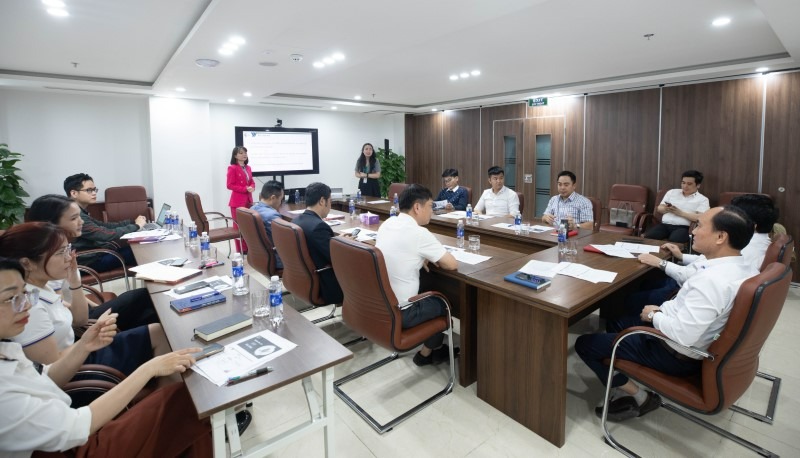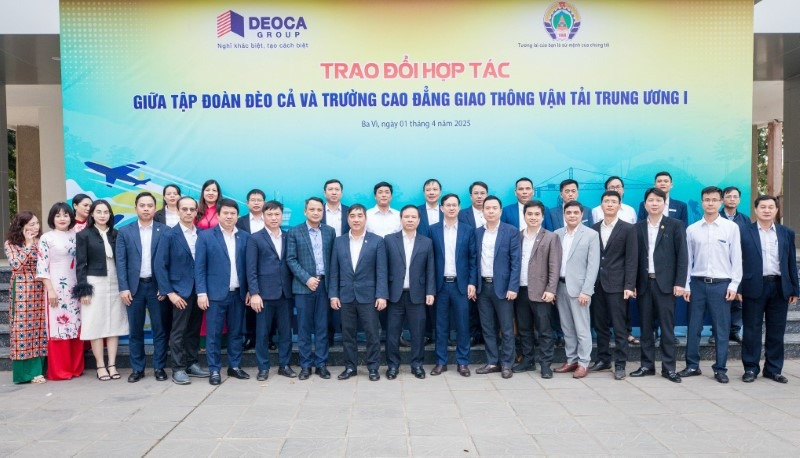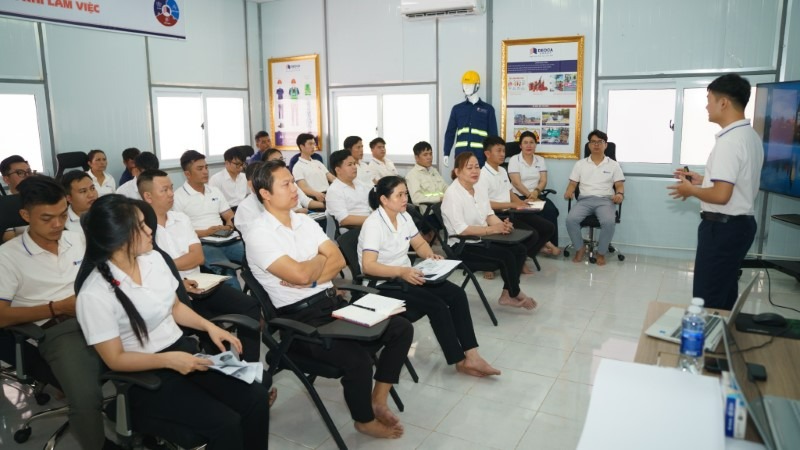On April 3, 2025, DEOCA Group and Ho Chi Minh City University of Technology and Education (HCMUTE) held a working session to clarify the direction of their collaboration in developing high-quality human resources for the transportation infrastructure construction industry. This marks a crucial step in the strategy to connect training between the two entities, ensuring that students gain a solid knowledge foundation and opportunities to access practical realities during their study process.
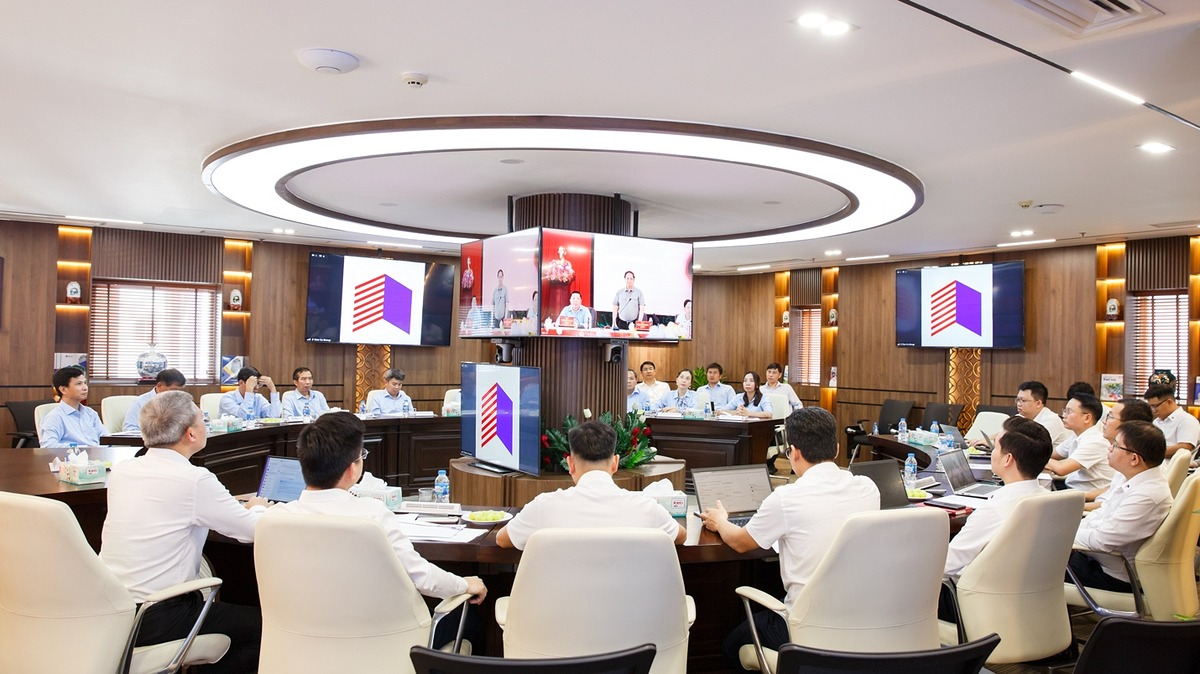
Overview of the Working Session at DEOCA Group’s Headquarters
In the coming period, the Government continues to prioritize investment in transportation infrastructure development, particularly in the planning of the expressway and railway networks until 2030. Accordingly, DEOCA Group has outlined its work plan based on a focused growth strategy encompassing three phases: long-term, mid-term, and short-term.
Sharing about the human resource development plan until 2030, Mr. Le Quynh Mai - Vice Chairman of the Board of Directors of DEOCA Group - stated that DEOCA will focus on building a highly qualified workforce, while also expanding collaborations with reputable academia such as Ho Chi Minh City University of Technology and Education (HCMUTE) to cultivate a human resource equipped with both a solid theoretical foundation and practical experience gained from major projects. Among these, the development of a course syllabus that integrates theory with practice is considered a key task.
Mr. Le Quynh Mai observed that, in recent reality, the proportion of enterprises required to re-train newly recruited personnel remains high. Therefore, collaboration between academia and enterprises to provide practical training from the outset, integrating both professional expertise and corporate culture into the learning process, is necessary. This approach will enable students, upon joining DEOCA Group, to quickly adapt, reducing their time needed for acclimatization and additional training.
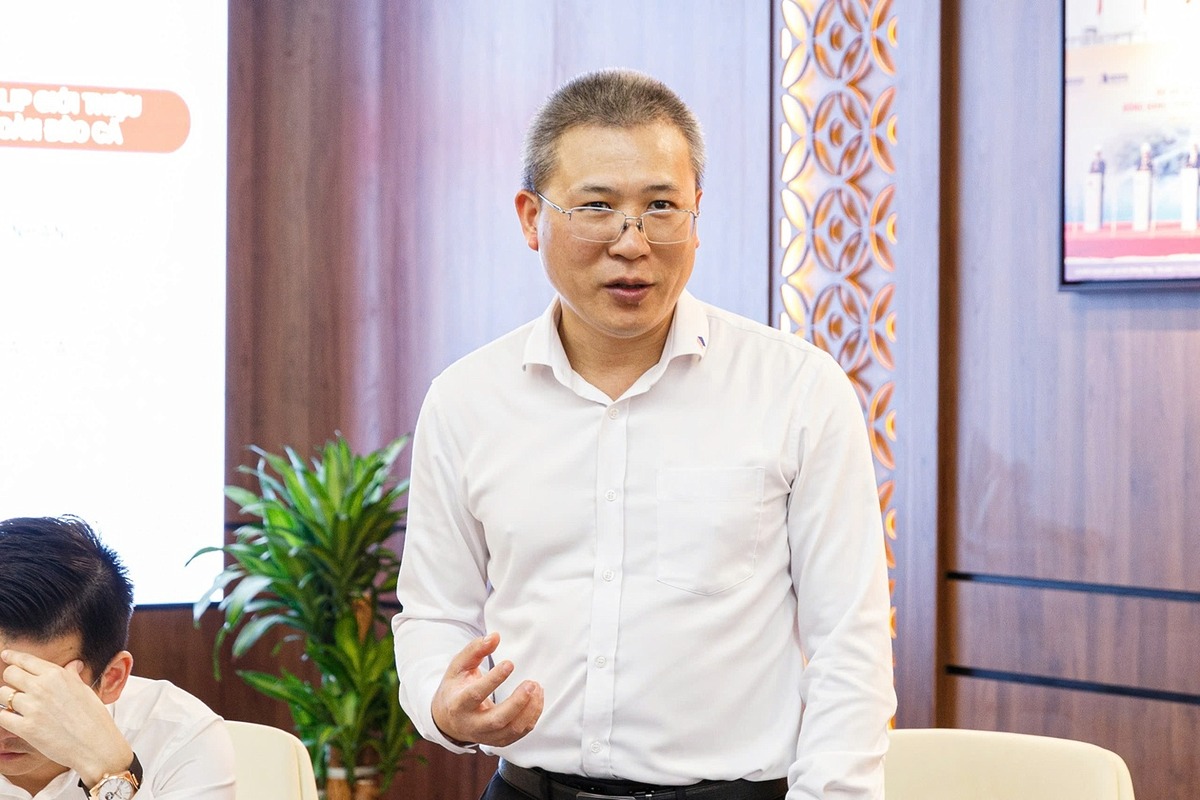
Vice Chairman of the Board of Directors, Mr. Le Quynh Mai, addresses the meeting
Accordingly, the training program will utilize upcoming major transportation projects as practical research models, helping students to gain a comprehensive understanding of the entire process, from pre-feasibility studies and planning to construction, operation, and maintenance. “This approach not only helps students intuitively grasp knowledge but also enhances their ability to apply it in real-world scenarios immediately after graduation”, Mr. Lê Quỳnh Mai stated.
In addition, DEOCA will continue to collaborate with academia in organizing apprenticeship programs and practical internships at the Group’s projects. These opportunities allow students to work directly in a professional environment, gaining exposure to modern construction technologies and processes. The Group will deploy its leaders, who possess strong expertise and extensive experience, to teach specialized modules, providing students with practical insights from large-scale transportation infrastructure projects nationwide.
Associate Professor Dr. Chau Dinh Thanh, Vice Principal of Ho Chi Minh City University of Technology and Education, stated that the collaboration between the university and DEOCA Group began five years ago. Many students from the university have had the opportunity to intern on projects implemented by DEOCA, thereby accumulating precious real-world experience even before graduating.
“The University's viewpoint is to fully support training programs that involve enterprises’ participation, as this is a practical direction that helps bridge the gap between theory and practice. The University commits to cooperating closely with DEOCA Group to develop training programs that uphold academic standards while meeting the practical needs of the enterprise” - shared Associate Professor Dr. Chau Dinh Thanh.
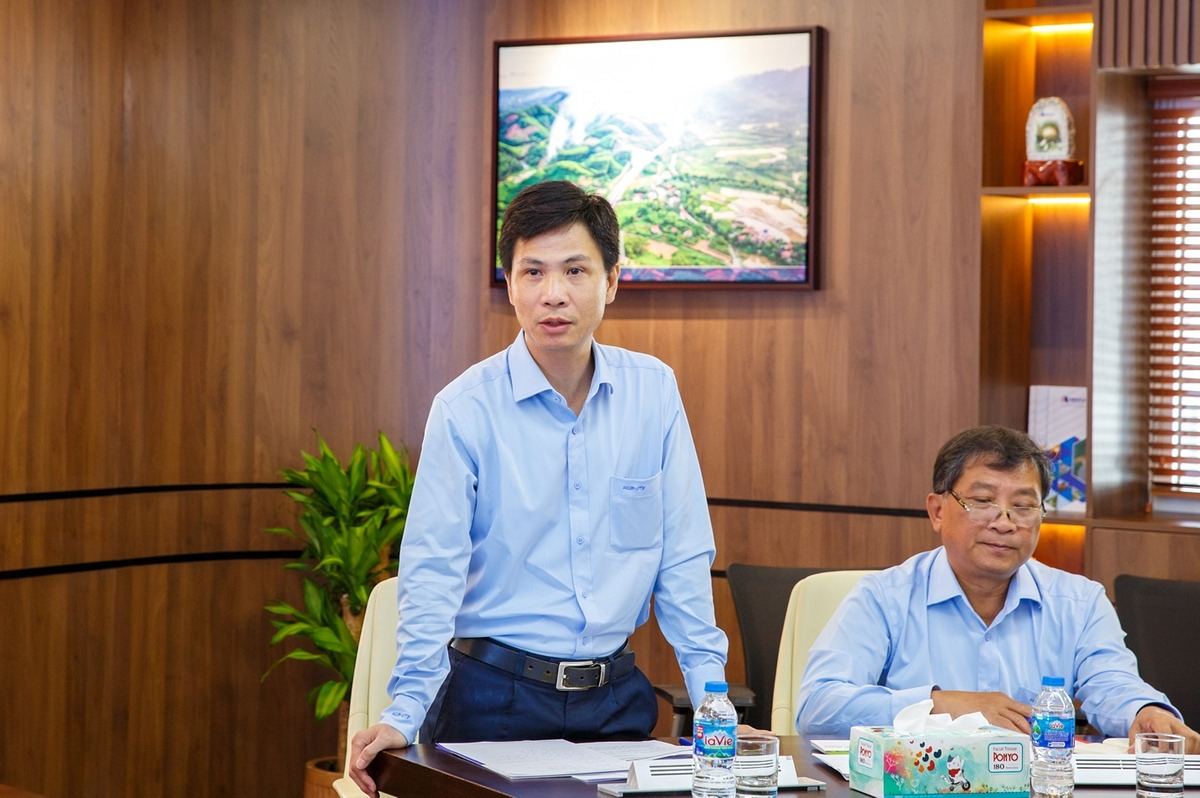
Associate Professor Dr. Chau Dinh Thanh expressed his desire to realize the cooperation between the two parties promptly.
Associate Professor Dr. Chau Dinh Thanh emphasized that the university eagerly anticipates a concrete cooperation program, creating opportunities for students to directly participate in DEOCA’s major projects to enhance their professional capabilities and develop practical skills, thereby preparing a solid foundation for their future careers. Concurrently, the university is also ready to flexibly adjust its training methods to achieve the highest effectiveness in this collaboration.
During the meeting, the specialized departments from DEOCA Group and representatives from various university faculties engaged in direct discussions to clarify the professional needs and requirements of each party. They also explored solutions to optimize the training program, ensuring the curriculum simultaneously met academic standards and aligned with the practical demands of projects.
Associate Professor Dr. Le My Ha, Vice Dean in charge of the Faculty of Electrical and Electronic Engineering at the university, emphasized that the collaboration between enterprises and academia requires a “truly firm handshake” to ensure genuine effectiveness. According to him, the first step is to clearly outline the enterprise's needs, specifically quantifying them with statistical data. From there, they can plan short- and long-term training strategies, developing a training program that is closely aligned with reality and provides clear career opportunities for students. Only then, he asserted, can the partnership become truly sustainable and deliver long-term value.
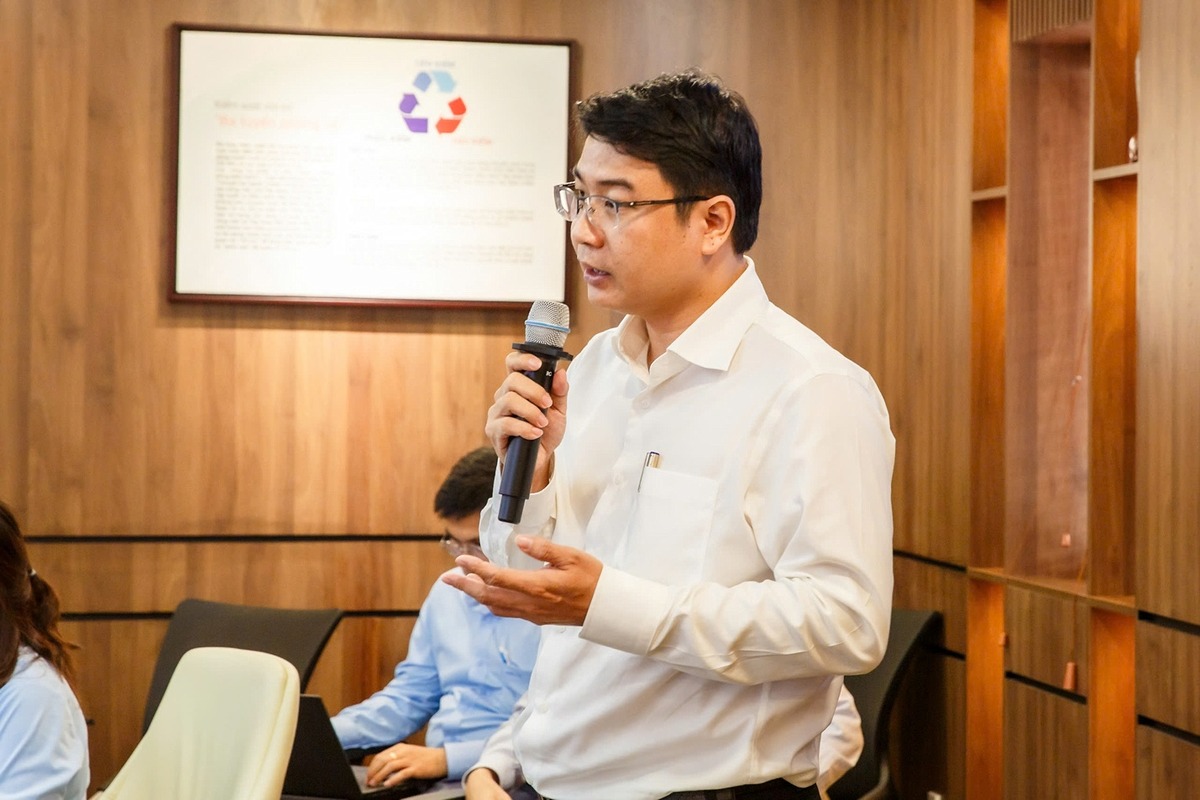
Mr. Le My Ha views collaboration between academia and enterprises as an inevitable trend.
Sharing the same perspective as Dr. Ha, Mr. Khuong Van Cuong, General Director of DEOCA Group, affirmed: “The university excels in theoretical strength, while the enterprises offer a rich practical environment, serving as a training ground for students to apply what they have learned to real-world tasks. This combination will foster creating a workforce that is both a solid foundation and practical experience, ready to contribute to the development of major projects which DEOCA is undertaking”. He also requested the Human Resources Department to provide specific figures on the required personnel so the university can develop a suitable training plan.
To promptly realize the collaboration objectives, Mr. Le Quynh Mai proposed that both parties should swiftly finalize detailed implementation plans. These include identifying training modules, developing a comprehensive roadmap and timelines for execution, and determining training needs as well as participation requirements for the courses.
The collaboration between DEOCA Group and Ho Chi Minh City University of Technology and Education holds great promise in delivering many practical values for both sides. This partnership not only provides students with opportunities to engage in real-world working environments while still in school but also represents a strategic step for DEOCA Group in building a high-quality workforce to support future transportation infrastructure projects.
News: Thu Thao – Photo: Cao Hieu



